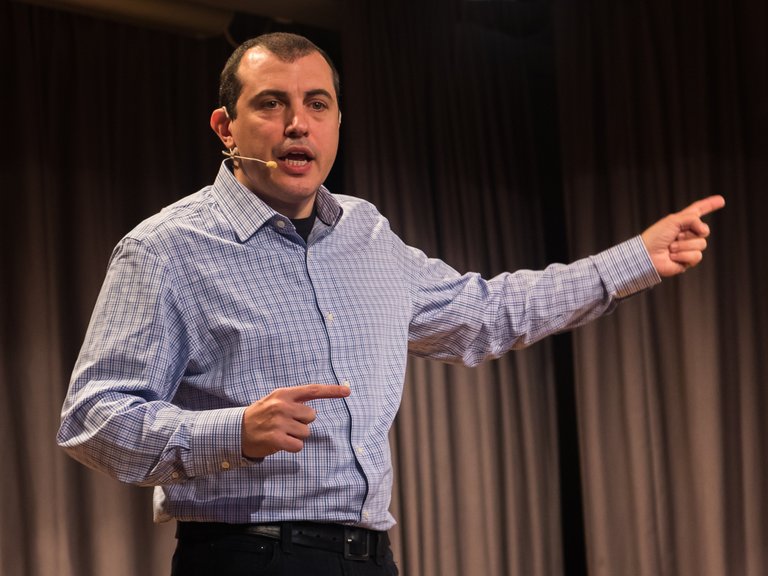Many Can Benefit from More Crypto Educational Options
All photos labeled for reuse.

New crypto projects can find it hard to be heard in a noisy crowd
Today, the cryptocurrency market is fast moving and ever-changing. With that said, smaller cryptocurrency endeavors trying to attract investors to their altcoins are finding it hard to garner attention and interest in a noisy field. Some projects offer incentives, most notably, Initial Coin Offerings, or ICOs, for simply holding the coins in hopes of being added to an exchange or for taking some action, such as following or tweeting about the project.
At the same time that projects are trying to get attention and users, demand is growing elsewhere in the industry. In late December 2017, Forbes reported that “Bitcoin- and blockchain-related jobs on LinkedIn have risen roughly 306% in the 12 months ending mid-November.” This demand in cryptocurrency and blockchain jobs should come as no surprise as people see opportunity in the industry, while coming to appreciate the blockchain technology as they learn more about it.

Andreas Antonopoulous is a pioneer in cryto education
As with any other industry in which there is demand for employment, there is also demand for education rin the field. Currently, the offerings are slim and mostly consisting of videos on educational platforms like Coursera and Udemy. Given the industry is in its infancy, many of the “experts” giving these classes are simply trying to make a buck, while promoting particular products or giving superficial explanations of blockchain and cryptocurrencies. However, a few legitimate educators like Andreas Antonopoulous, who runs a Digital Currency program at the University of Nicosia in Cyprus, have become important voices.
Furthermore, IBM offers some courses on blockchain, including free courses that provide certificates upon completion and passing of a final exam. According to Bitcoin.com, three services have the goal of creating Bitcoin professional and experts. These include CryptoCurrency Certification Consortium (C4), Digital Currency Council, and Princeton via the aforementioned Coursera. Nearly all courses, classes and certificates focus on blockchain and Bitcoin or a handful of other major cryptocurrencies and not on the plethora of other projects and coins.
The lack of mentions in cryptocurrency courses can make it hard for smaller projects trying to get the word out. It can also be a great opportunity.
As mentioned above, most new projects offer something to early users in exchange for their support. New projects need users to create demand, get listed on exchanges and increase the appreciation of their coins. Where do the courses and certificates come in? I thought you’d never ask.
By offering short, free courses with certificates – which can be verified via blockchain – new projects can offer those with interest in being employed in the crypto field. The new projects will educate users on their project as opposed to having to rely on individuals visiting their websites, downloading their white paper and reading through it. Those who take the course and earn the certificate will also be more invested in the project and more likely to take advantage of the other early stage activities (e.g. ICOs) as well as invest in the cryptocurrency at a later stage.
Those taking the course and earning the certificate, on the other hand, will be compensated for their time with certificates, possibly verified, which will help them build stronger resumes for potential cryptocurrency positions. This is particularly important for those looking to work in the industry, but without the technical skills, such as crypocurrency traders, analysts, marketing managers, etc.
In summary, the demand for cryptocurrency education will increase alongside with the demand for jobs in the cryptocurrency space. By offering courses and certificates, both new project developers and teams as well as potential job seekers will benefit with fewer risks in a marketplace that be hard to get one’s voice heard.